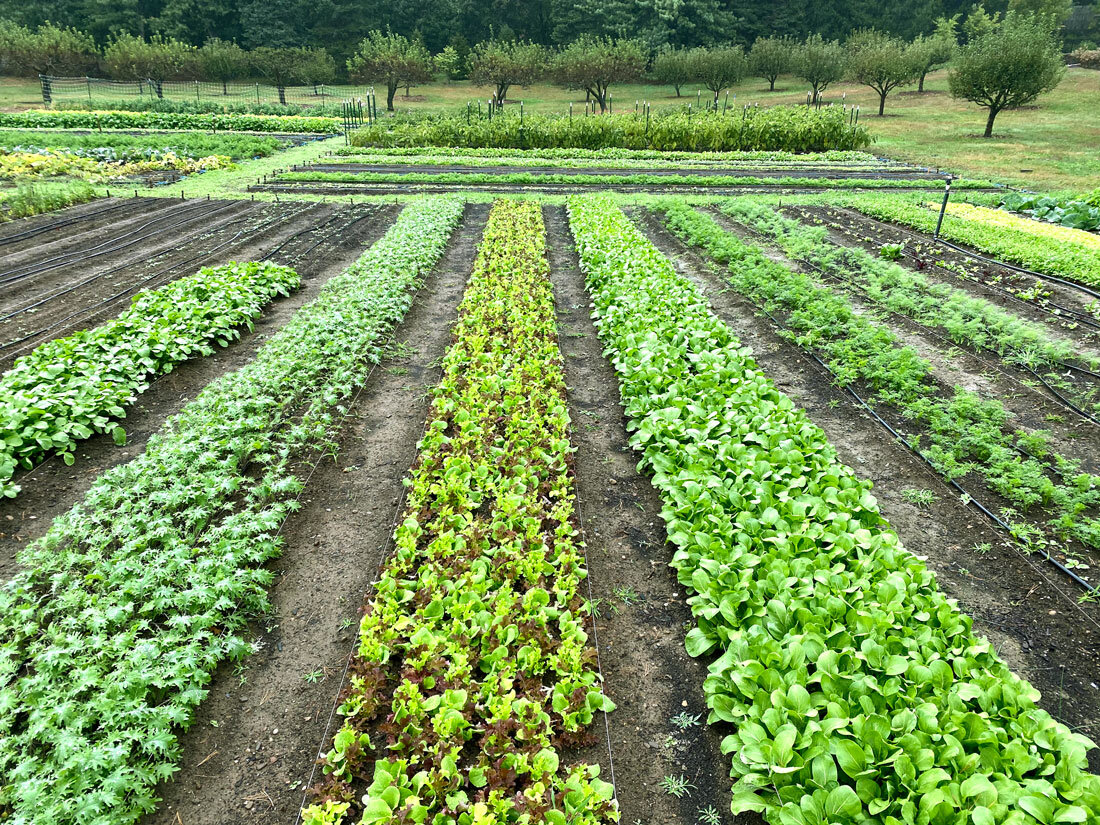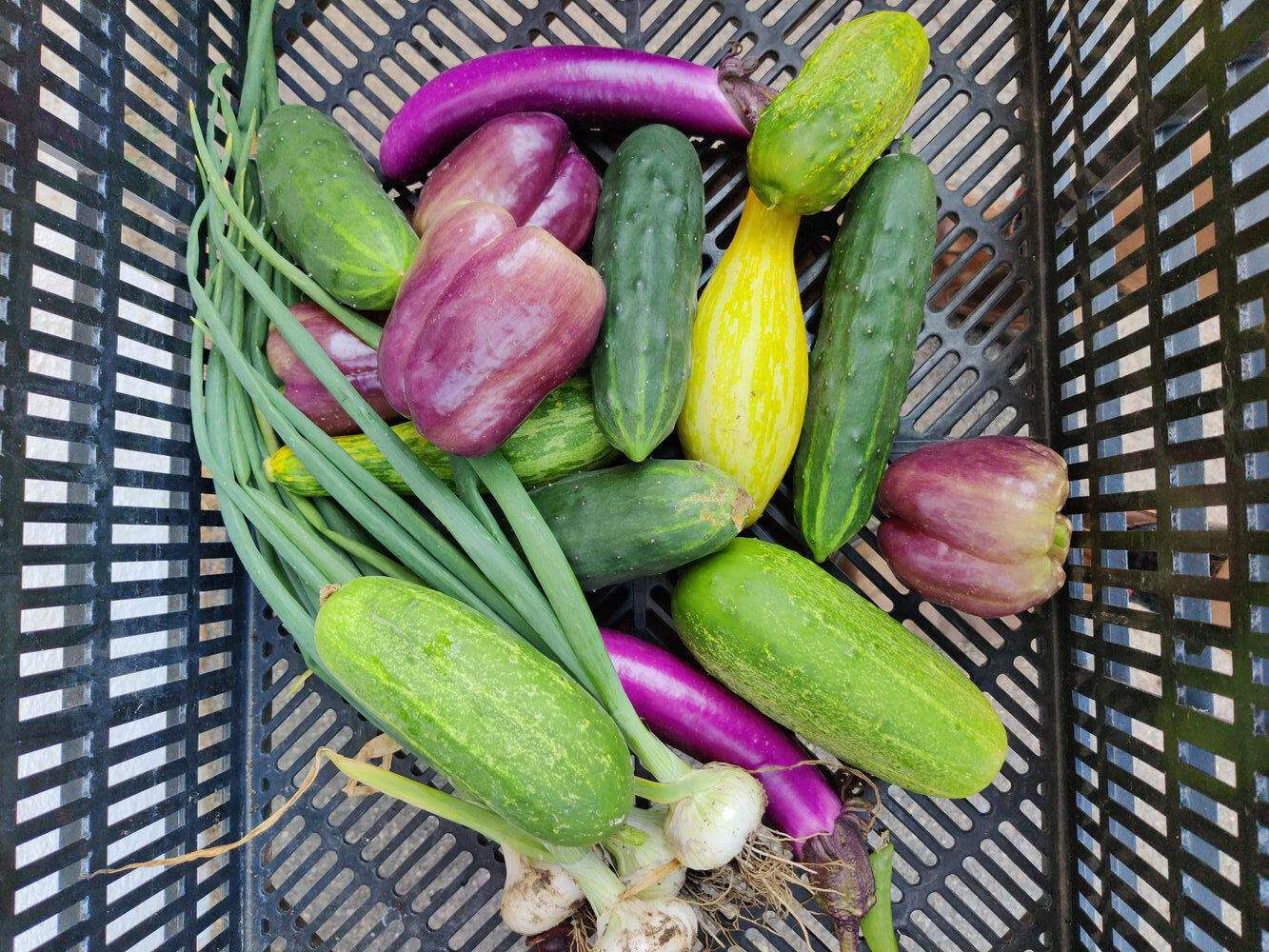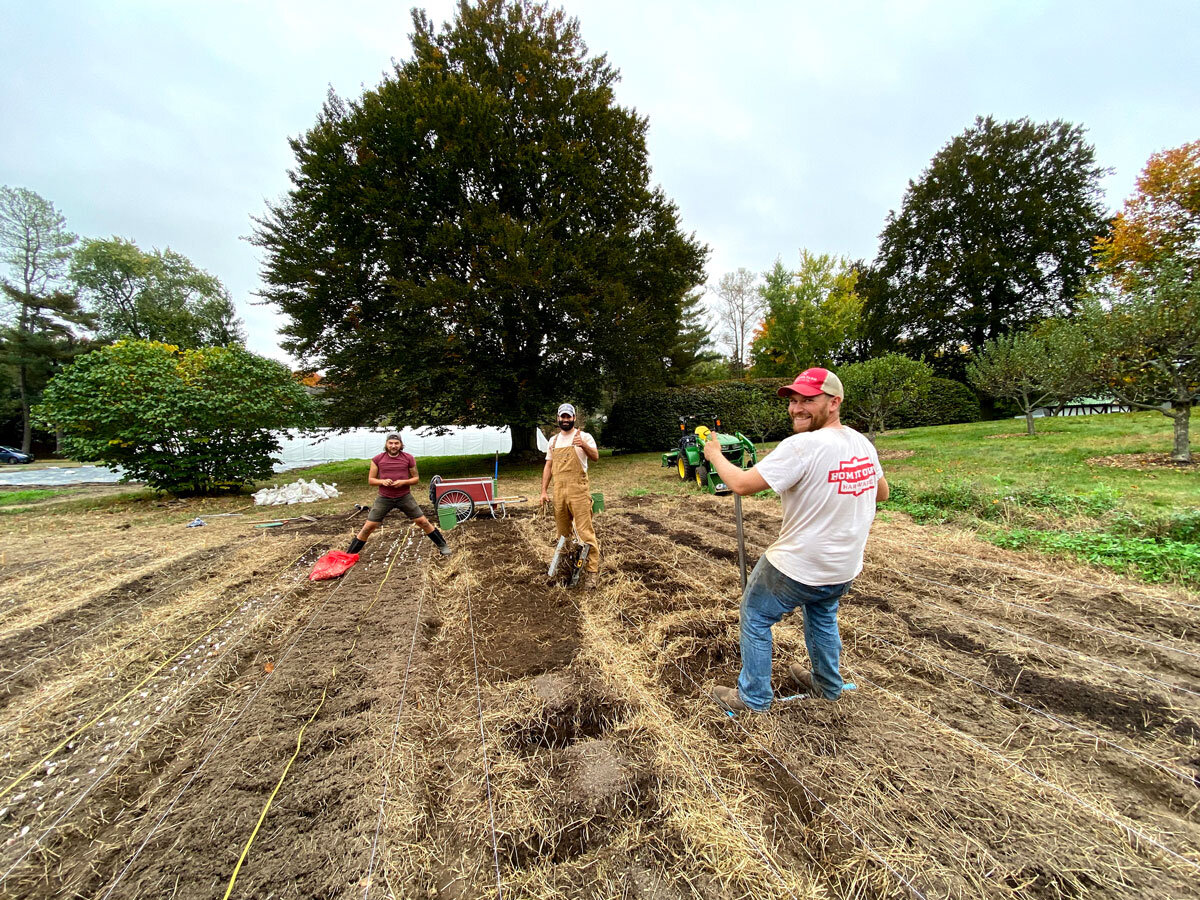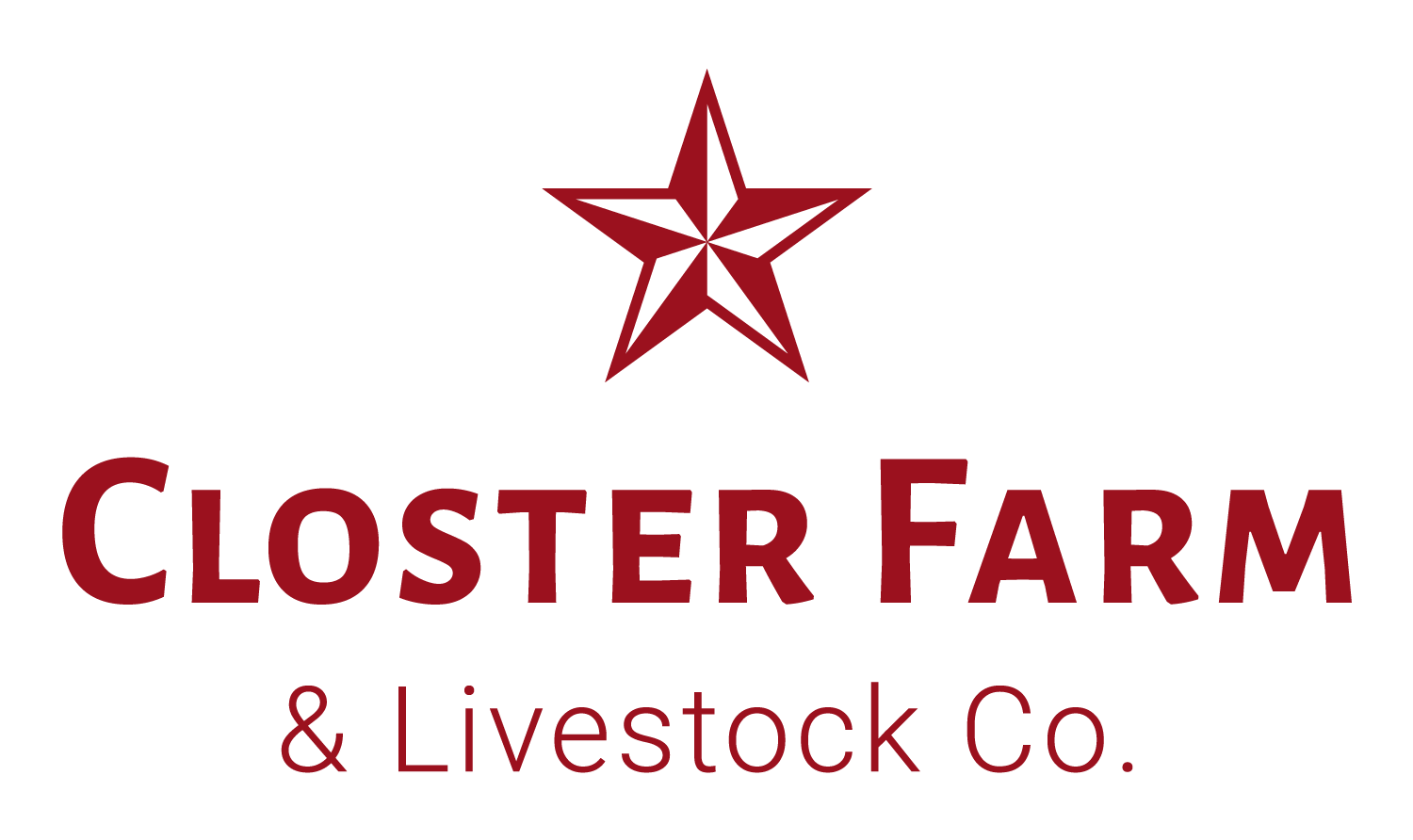
Our Philosophy
We believe that the healthiest, best tasting, most beautiful vegetables and livestock are grown when they are a symbiotic product of whole farm health. Every action we take is focused on fostering a diverse, resilient, verdant ecosystem whose natural byproduct is intense soil fertility and natural pest resistance. Equally important to us is that our approach follows sustainable environmental best practices by sequestering carbon in our soil and minimizing or eliminating the water and air pollution associated with conventional agriculture and its reliance on synthetic chemicals.
Organic
We are proud to be Certified Organic. Annually we complete a holistic review of the farm and our practices to ensure that every aspect of our purchasing and production comply with strict standards.
Organic agriculture sees the health of soil, plants, animals, humans and the planet as one and indivisible, and so do we.
Regenerative
Conventional wisdom has long held that the world cannot be fed without chemicals and synthetic fertilizers. Evidence points to a new wisdom: The world cannot be fed unless the soil is fed.
Regenerative agriculture enhances and sustains the health of the soil by restoring its carbon content, which in turn improves productivity—just the opposite of conventional agriculture.
Our Community
You are by far the most important element of our success. Without your commitment, our small-scale farm could not exist. You support us at our farm stands, with our market cards, in your kitchens, and in conversations with your neighbors. Thank you!

Our Practices
To maximize soil fertility and nutrition for your family while minimizing waste and pollution to our environment, our practices include:
No tractor tillage in our vegetable beds
Multiple crop rotations
Diverse cover crops
Composting for in-farm fertility
No synthetic pesticides or fertilizers
Managed grazing
Our Soil and Seeds
Our “low-till” methods reduce soil disruption, and instead build strong mycorrhizal networks and soil biology that feed our vegetables and animals.
Our heirloom seeds hail from small scale organic seed banks. They are selected for flavor, appearance, nutritional density, and resiliency to local growing conditions.
Our Livestock
Our animals live happy lives, ranging on pasture, rotated over fresh cover crops, under trees, and around the farm giving them a huge supplemental diet of naturally foraged goodness. We also feed our animals Organic feed and scraps from our harvests to make sure they get the variety that we’d want if we were them. Following strict animal welfare guidelines, our livestock always have outdoor access (once they are old enough to handle themselves), abundant shade in the heat of summer, and ample space within their protection perimeter to wander and sleep at their leisure.
Our Environment
Our regenerative cultivation practices constitute the best way that the agriculture sector can reduce carbon emissions and other pollution. No-till, cover cropping, crop rotation and composting keep carbon and other fertility in the soil rather than releasing it into the atmosphere and waterways.

Why “Low-Till”
Turning up soil with a tractor is called tilling. Tilling before and after a harvest is a mainstay of conventional agriculture. We don’t do that. Tilling repeatedly destroys the soil’s structure and the fertile biology which enables plants to uptake nutrients. It also releases carbon and moisture into the atmosphere, creating greenhouse gasses, air and water pollution.
We till only when necessary (opening a new field, or incorporating cover crops), but otherwise abstain, preferring to add home-made compost to add fertility to our top soil layer where our crops call home.



